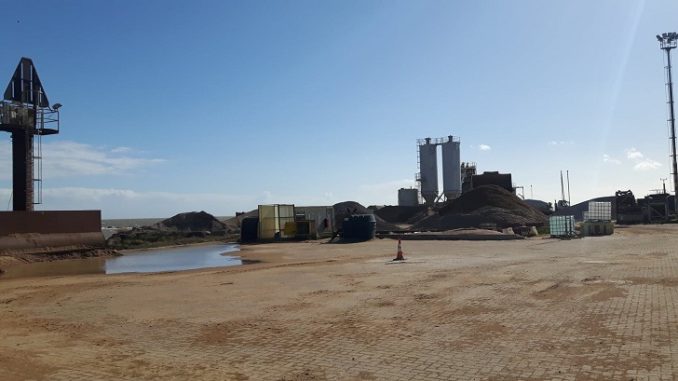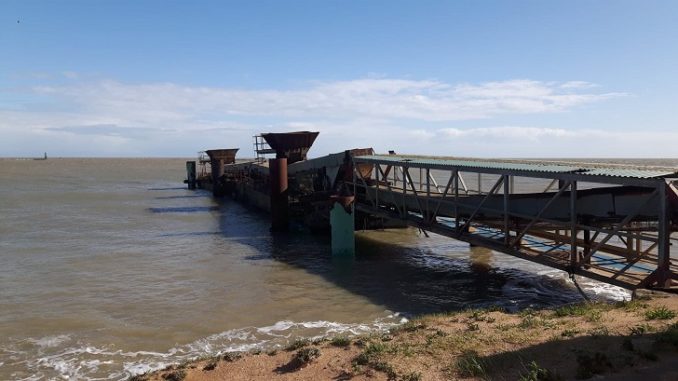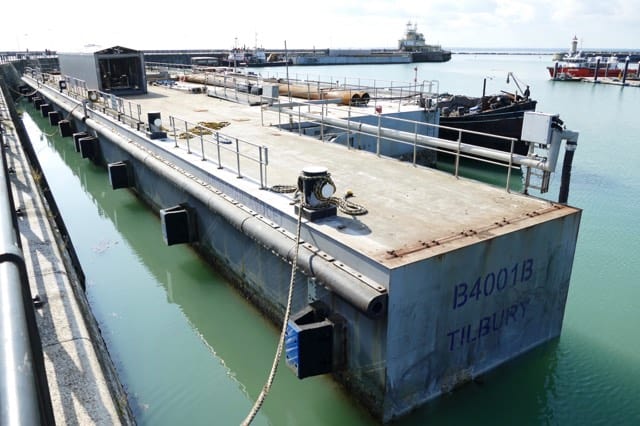
An independent review into the management of the scheme to replace Berth 4/5 at Ramsgate Port has found insufficient funds were initially allocated to the project, an unrealistic timeline for completion was produced, there was no contingency plan for an overrun in costs and there was a lack of communication with residents and council members.
The report, produced by the East Kent Audit Partnership, has made nine recommendations for future project management at Thanet council after the detailed examination of the eight year saga to replace the berth which is used by Brett Aggregates.
A report by Independent Monitoring Officer, Quentin Baker last year into failings at Thanet council which resulted in the exit of the entire top senior management team highlighted the berth replacement project and recommended the independent review/audit be undertaken.
The berth had to be replaced by Thanet council as part of the lease agreement with Brett Aggregates. Between 2015 to 2019 the council realised it could not afford to build a fixed berth and considered suitable second hand pontoons, which proved to be rare, with only three opportunities arising over four years.

The independent report says: “When the unique, and even rarer, offer of two suitable second hand pontoons became available, the council had an approved capital project for replacing Berth 4-5, but not for the second pontoon. Efforts to seize this opportunity and also utilise the second pontoon elsewhere, almost derailed the original project, as the impression of the two projects being merged caused confusion.
“Additionally, the change in advice regarding the requirement for an Environmental Impact Assessment caused 20 month’s delay. The final outcome being that the replacement of Berth 4-5 has yet to be completed and is over budget.”
Construction work on the controversial berth replacement at Ramsgate port started last June and is expected to finally be completed next month.
A replacement for Berth 4/5 was approved in May 2022 by Thanet council following the decommissioning of the previous structure.

The 119m replacement berth consists of a floating pontoon purchased from Bam Nuttall held in place by steel piles. A hinged gangway provides access whilst accommodating tidal movement. It is longer and wider than the previous 70m long berth.
The contract for the berth was awarded to the firm that previously had its direct deal offer of two-for-one pontoons rejected by Thanet council.
The pontoons, owned by construction firm Bam Nuttall, had been the subject of the deal and destined to provide a new berth 4/5 at the port and to provide extra berthing for wind farm vessels at the Royal Harbour.
Councillors were asked to approve the £1.4million decision to buy the two 75 metre barges but members opted to reject the plan in December 2019.
It was put it out to tender but dropping proposals for the second pontoon at the harbour. This was in part due to differing views on the correct procurement route for the project. The contract was then given to Bam Nuttall. The independent report says this was a missed opportunity and the second pontoon could have been stored and then sold to recoup some of the costs.
Brett Aggregates, which uses the berth, is currently bringing gravels in by road to the site at the Port of Ramsgate
In 2021 it was revealed the allocation for the project had increased from an original £1.497 million budget to £2.322million and a final cost is yet to be revealed.
The review says the cost overruns were incurred because;
- Decommissioning and removing the existing berth before all permissions were received and the construction phase of the replacement berth agreed, leading to a compensation event with the tenant (noting there was little choice given the failure of the structure in November 2020).
- Awarding the contract to BAM on (signed contract copy) 30 September 2020 without being able to proceed on site, leading to the contract being paused with penalties being applied and uplift clauses.
- Changes in advice regarding the necessary licences leading to engaging additional legal advice, consultants, and both the cost of carrying out a full EIA and the extended delay that this caused (impacting the uplift costs for the construction contract and extending the use of consultants further).
- To enable the contractor to comply with the MMO licence date, work was descoped with BAM. Retendering the descoped work has resulted in increased prices to complete the project (original tender March 2020 – revised quotes January 2023).
Communication
The report also advised better communication with the public as the berth replacement plans had provoked considerable opposition.
The report says: “The community engagement surrounding this project was largely missing. Even with there being known strong views in the community about the agreements in place and the responsibilities of the council, which residents indicated were ignored.
“Residents and some members would wish to challenge that the council did indeed need to replace Berth 4-5 either at all (or that the existing Berth 4-5 was repairable. Attempts to seek information regarding this from the council utilised the Freedom Of Information requests (FOI) process. The lack of transparency is a symptom of poor governance.”
Difficulties
Councillors at a Cabinet meeting discussing the report last week highlighted issues that included difficult relationships with the previous officer top team, changes in political leadership of the council during the project and the need for councillors to scrutinise projects.
Ward councillor Becky Wing raised several questions, to be answered at a later date, around the project and lessons learned to be applied to spending Levelling Up Fund grants for the port.
Cllr Bayford said officers and members had been subject to a “vicious movement” during 2018/19 by some who were opposed to the plans.
The report will be discussed again by full council on Thursday (March 30)
The nine recommendations are:
- Programming should start earlier, and resources should be sufficient to create capacity to think adequately ahead and deliver projects; particularly for the replacement of Council assets before their end of life, together with a realistic estimate of costs to replace assets.
- Use the powers contained in the Constitution to enable improved Decision Making – seizing opportunities is not unlawful and may be undertaken with good governance.
- Community Engagement should be more inclusive, and the investment may prevent the escalation of views on social media.
- Communication strategy throughout the project should report key milestones being achieved.
- Greater inclusion of the specialist input required on project teams throughout the life of the project.
- Identify sooner when external resources or expertise will be required, and acknowledge the delay or cost impact this could have on a project.
- Better understanding of how long projects realistically take to complete, and build in contingency as unforeseen events will occur.
- Better feasibility of project costs, to include the modelling of the “worst case scenario” from the risk assessment, to enable contingency or ‘deal break’ cost points to be built into the project milestones.
- Responsibility for Project Management should be allocated, the Council should agree a Project Management Framework, provide guidance on the intranet and support relevant staff with training.

